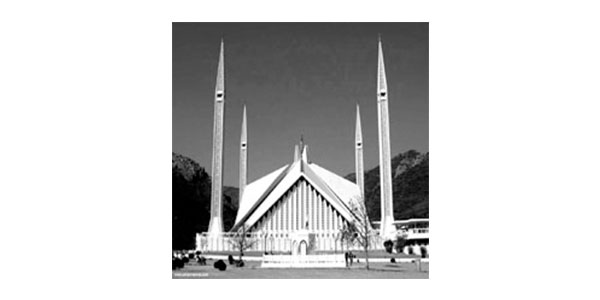Women’s rights in Islam
OPPRESSED, inferior and unequal for many people, these are the first words that come to mind when thinking about women in Islam.
These stereotypes confuse Islam with cultural practices and fail to recognize that Islam has empowered women with the most progressive rights since the 7th Century.
In Islam, women are not inferior or unequal to men. This brochure presents the actual teachings of Islam regarding the rights, roles, and responsibilities of women, with a special focus on gender equality in Islam.
In 610 CE, the Allah Almighty began to reveal the message of Islam to the Last Prophet (SAWW) in Mecca.
The Prophet (SAWW) called people towards the belief in one Allah and encouraged them to be just and merciful to one another.
In reforming the pagan Arab society, he particularly transformed their mindset regarding the treatment of women.
Islam abolished the practice of killing female children and raised the stature of women in society to one of dignity, esteem, and privilege.
The Allah Almighty devotes an entire chapter of the Quran, the holy book of Islam, to women.
In addition, the Allah Almighty directly addresses women repeatedly throughout the Quran. Islam proclaims that all human beings, men and women, are born in a pure state.
The goal of every Muslim is to preserve this purity by shunning evil tendencies and beautifying their inner being with virtuous traits.
Islam further confirms that both men and women are equal in the sight of the Allah Almighty.
In the Quran, the Allah Almighty declares, Indeed, the most noble of you in His sight of the Creator is the most righteous of you. (49:13)
While Islam clearly establishes that men and women are equal, it does recognize that they are not identical.
The Allah Almighty created men and women with unique physiological attributes. In Islam, these differences are embraced as vital components to a healthy family and community structure with each individual contributing their own distinctive talents to society.
Hence, the Allah Almighty rules apply to both genders, but in diverse ways. For example, Allah commanded women to cover certain parts of their body, including their hair, to preserve their modesty.
Men are also required to cover parts of their body out of modesty, but not in the same way as women.
Therefore, the Allah Almighty commanded both men and women to be modest; yet, the manner in which they observe it is different.
Similarly, the rights, roles, and responsibilities of women are evenly balanced with those of men but are not necessarily the same.
As Islam has granted individual identities to men and women, a constant comparison between the two is futile.
Each plays a unique role to mutually uphold social morality and societal balance. The following overview details a wide range of women’s rights in Islam.
It addresses some common misconceptions and provides insight into the diverse roles and responsibilities women fulfil in society.
It must also be mentioned here that Muslims are not always representative of Islam and may follow their cultural influence or personal interests.
In so doing, they not only disenfranchise women, they also go against the clear guidelines laid out in Islam regarding the treatment of women.
Therefore, their practices go against the liberties and entitlements which Islam empowers women with, as shown below.
In Islam, women are not obligated to earn or spend any money on housing, food, or general expenses.
If a woman is married, her husband must fully support her financially and if she’s not married, that responsibility belongs to her closest male relative (father, brother, uncle, etc.)
She also has the right to work and spend the money she earns as she wishes. She has no obligation to share her money with her husband or any other family members, although she may choose to do so out of good will.
For instance, Khadija, the wife of the Last Prophet (SAWW), was one of the most successful businesswomen of Mecca, and she freely spent from her wealth to support her husband and the cause of Islam.
At the time of marriage, a woman is entitled to a financial gift (dowry) from her husband. This dowry is legally owned by her and cannot be used by anyone else.
In the case of divorce, she has the right to keep whatever she owned before the divorce and anything she personally earned after marriage.
The former husband has no right whatsoever to any of her belongings. This ensures a woman’s financial security and independence, allowing her to support herself in the case of divorce.
Any form of emotional, physical or psychological abuse is prohibited in Islam and the improper treatment of women is no exception to this rule.
Indeed, there is no teaching in Islam, when studied in its complete context, which condones any kind of domestic violence.
Islam clearly disallows any form of oppression or abuse, it cannot be stated enough times that anyone who exercises unjust authority in the name of Islam is actually doing so to uphold their own cultural influence or personal interest.
All of the Allah Almighty creation is dignified and protected under Islamic law. In conclusion, Islam has an extensive tradition of protecting the civil liberties of women based on the guidelines set forth by the Allah Almighty and His Prophet (SAWW).
Women are empowered with many rights and protections under Islamic law and are honoured with a dignified stature in society.







